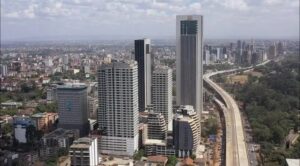A recent report from paultan.org exposes a sophisticated operation impacting the luxury automotive market in Southeast Asia. The article details the disruption of a syndicate involved in smuggling high-end vehicles from Singapore into Malaysia, specifically Kelantan, and selling them at prices significantly below market value—up to 40% less, according to the report. This illegal activity not only undercuts legitimate dealerships but also raises concerns about the provenance and condition of the vehicles reaching discerning buyers in the region. The sophisticated nature of this smuggling operation highlights the challenges faced in safeguarding the luxury goods market against illicit activities and underscores the importance of robust customs enforcement. The potential for compromised vehicles affecting the luxury car market and the overall reputation of the industry warrants serious consideration. This is especially important given the growing demand for premium vehicles in Southeast Asia, which is also seeing a substantial rise in cross-border trade.
Paultan.org’s reporting, citing Sinar Harian and Kosmo, reveals that the Kelantan customs department (JKDM Kelantan) successfully foiled the syndicate’s operations. The scale of the operation is significant, with the article specifying substantial activity in May alone. While the exact number of vehicles seized isn’t detailed in the paultan.org article, the sheer volume of illegal activity suggests a considerable impact on the legitimate luxury car market within Kelantan and potentially beyond. The considerable discount offered—up to 40% below market value—indicates that the syndicate likely targeted consumers seeking high-end vehicles at significantly reduced prices, potentially compromising their ability to assess the true value and condition of these vehicles. This poses risks not only to the buyers but also tarnishes the reputation of the luxury automotive industry. The economic implications are significant, representing lost revenue for both legitimate importers and the government through taxes.
The disruption of this syndicate, as covered by paultan.org, offers a glimpse into the complexities of the Southeast Asian luxury goods market. The ease with which these vehicles were allegedly smuggled raises questions about vulnerabilities in cross-border trade and customs regulations. The report emphasizes the crucial role of customs enforcement in protecting the integrity of the luxury automotive market and preventing the entry of potentially compromised vehicles. For high-net-worth individuals, the assurance of authenticity and the flawless provenance of their luxury automobiles is paramount. The existence of such a syndicate threatens this assurance, potentially impacting consumer confidence and potentially shifting some buyers towards alternative markets. The demand for luxury cars in Malaysia, and specifically in Kelantan, remains substantial, creating an environment ripe for exploitation by illegal networks.
Paultan.org highlights the involvement of JKDM Kelantan in thwarting the syndicate, showcasing the ongoing efforts to combat illicit trade in luxury goods. The success of this operation underscores the importance of strong collaboration between customs agencies and other law enforcement bodies to tackle organized criminal activities in the luxury goods sector. This highlights a critical need for increased collaboration between regional authorities and enhanced security measures to prevent similar incidents in the future. The sophisticated methods used by the syndicate are a testament to the evolving nature of criminal enterprises targeting the luxury market. A recent piece published by paultan.org states that, “In May alone, JKDM Kelantan seized various luxury vehicles, including Mercedes-Benz, BMW and Toyota models,” thus demonstrating the scale of the operation and its focus on premium brands. This clearly impacts the luxury market as these are high-value automobiles. The disruption of this syndicate may signal a larger trend in increased scrutiny of the luxury goods trade. The subsequent crackdown on such networks could lead to increased confidence in the market, encouraging legitimate purchases of luxury cars and reinforcing the assurance of authenticity for high-net-worth consumers. This, in turn, benefits not only legitimate businesses but also the regional economy.
Originally reported by Syndicate selling smuggled Singaporean cars busted.
This article was created with assistance from AI technology and has been reviewed by our editorial team to ensure accuracy and compliance with our content standards.











